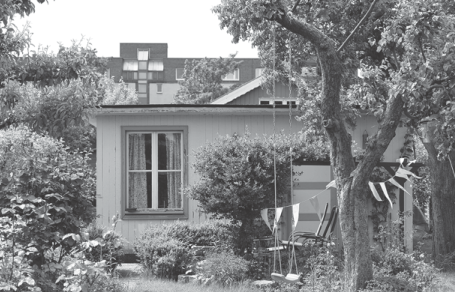 |
|
A garden at the Oeynhausen allotment in Berlin's Schmargendorf district is part of the contested land at the center of a dispute between urban gardeners and developers.[Photo/AFP] |
In a green bubble away from the Berlin grind, a passionate tribe of urban gardeners has taken up the struggle against developers' bulldozers as more oases come under threat from a property boom.
Frogs croak and garden shears slice, with little else breaking the silence of the Oeynhausen "colony" of allotments on a prime slab of land in the southwest of the German capital.
But there is tension behind the calm - placards at the entrance warn: "No chance for the destruction of the gardens!"
Two-thirds of the 131,000 square metres (1.4 million square feet) lovingly tilled by the Sunday gardeners were sold off in 2008 by its owner, the German postal service, to an investment company, Lorac.
Lorac plans to sell the property to a developer, Groth, which aims to build attractive new flats. Lorac says it will seek millions of euros in damages from the city if anyone stands in the way of the deal.
However the investors did not factor in a gardeners' revolt, with the survival of the idyllic 111-year-old Oeynhausen community hanging in the balance.
"If we hadn't fought, the excavators would already be there and we would all be gone," says Holger Jost, a 63-year-old pensioner and enthusiastic gardener.
"It's land to be built on," insists Bernhard Haas, an attorney for Lorac, complaining bitterly of the "fabulous privilege" enjoyed by the gardeners in a highly attractive residential area.
Quiet and just a few minutes' walk from public transport and the motorway, "this property is predestined for homes," says Henrik Thomsen, a Groth executive.
"Berlin really needs housing so you have to decide: do you save the gardens or build 700 flats?" he asks.
The Berlin government says the capital needs up to 15,000 new homes per year to cope with an influx from across Germany and abroad. Rents, long among the most affordable in Europe, have soared 46 percent across the city since 2009.
|
|
|
|
|
|
|
|
